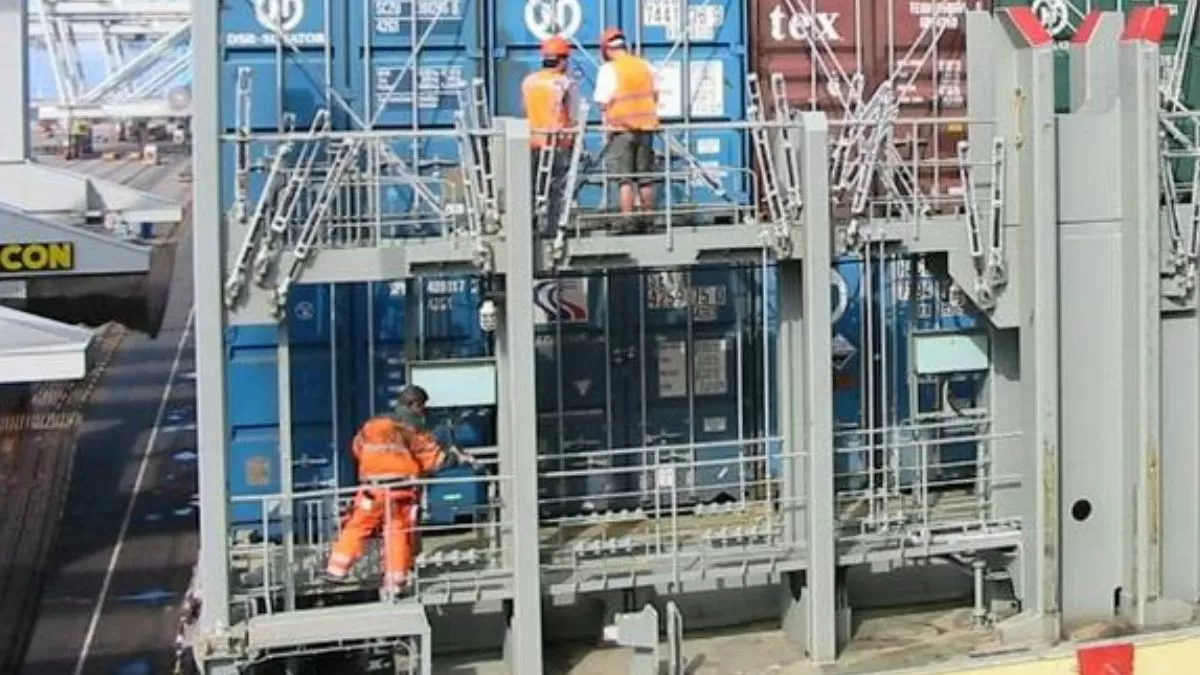Three Dozen U.S. Ports In Peril of Longshoremen’s Strike
As we continue to navigate through unprecedented times, the last thing that our economy needs is another blow. Unfortunately, that is exactly what we may face as around 45,000 dockworkers are expected to go on strike for higher wages across three dozen East Coast and Gulf Coast ports. This news has prompted serious concerns among business owners, retailers, and consumers alike.
The possibility of a strike comes at a critical time when our economy is still recovering from the impact of the pandemic. The supply chain has already been severely disrupted, and the threat of a strike only adds to the uncertainty and chaos. The strike would involve members of the International Longshoremen’s Association (ILA), who have not seen a wage increase in over three years.
The ILA represents employees at ports from Maine to Texas, handling vital cargo and goods that are essential to our daily lives. These workers play a significant role in keeping our economy moving, and their hard work deserves fair compensation. They have been on the front lines throughout the pandemic, ensuring that essential goods reach their destinations despite the challenging circumstances.
The ILA’s fight for higher wages is not just about fair compensation for their labor; it’s about supporting their families and maintaining a decent standard of living. Many of these workers have been with the ILA for decades, dedicating their lives to this crucial industry. It’s only fair that their wages reflect their experience and hard work.
The strike would severely impact the flow of goods through the ports, leading to delays, backlogs, and increased costs. This would create a ripple effect throughout the economy, ultimately affecting consumers. With the holiday season approaching, the timing could not be worse. The Port of New York and New Jersey alone handles around $200 billion worth of cargo annually, and a strike there would have a significant impact on the entire nation.
The threat of a strike has already prompted some businesses to reroute their shipments to other ports, causing a strain on those ports and further complicating the situation. The longer the strike continues, the more significant the impact will be on our economy. It’s a lose-lose situation for everyone involved.
The last strike by the ILA was in 1977, and it lasted for 10 days, causing significant economic damage. We cannot afford a repeat of history, especially during these challenging times. It’s time for the ILA and the port operators to come to the table and find a solution that benefits both parties.
This strike can be avoided if both sides can find common ground and negotiate a fair contract. It’s essential for the ILA to have its demands heard and for the port operators to understand the significance of the workers’ contributions. It’s not just about wages; it’s about creating a sustainable and fair working environment for everyone involved.
According to representatives of the ILA, the strike is a last resort, and they are hoping to come to a resolution before it becomes a reality. They have already postponed the strike once, giving the port operators an opportunity to come to the table and negotiate. However, with the deadline fast approaching, time is running out.
As a nation, we must come together and support the dockworkers in their fight for fair wages. We cannot afford a strike that would harm our economy and jeopardize the livelihoods of thousands of workers. It’s time for the port operators to acknowledge the importance of the ILA and work towards a mutually beneficial solution.
In conclusion, the possibility of a strike by the dockworkers at three dozen U.S. ports is a cause of concern for our economy. We must ensure that the hard-working men and women of the ILA receive fair compensation for their labor. It’s time for the port operators to step up and find a solution that avoids any disruptions to our supply chain and supports the workers who keep our economy moving. Let’s hope that a resolution can be reached before it’s too late.

